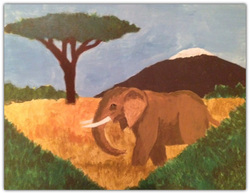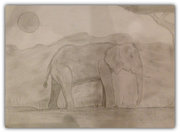“When a man has pity on all living creatures then only is he noble.” – Buddha
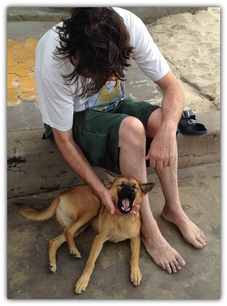 My dad with a dog at the beach
My dad with a dog at the beach I come from Seattle, which is a really dog friendly place. There are dog parks, bakeries for dogs, doggy daycares, and even restaurants where you can bring your dog with you. But when I moved to Vietnam, I noticed things were different. When we moved into our new house in Ho Chi Minh City, we noticed that our neighbors had a white spotted dog. It did not have a name. The dog was chained to a small metal cage in their front lawn. No one ever walked or played with the dog, and on the occasion when it was unchained, my sister and I would play with it through the iron gate. My sister named him Teo. Teo was chained up and barking almost everyday, all day. They left him out in the scorching hot sun, they left him in the cold rain, and even in thunder and lightning storms. We really wanted to do something about it. Every time my dad tried to talk to our neighbors, they just complained about how bad their dog was. My dad just moved to a new country and he did not want to be telling the neighbors what or what not to do. They don’t have Teo anymore. We don’t know what happened to him.
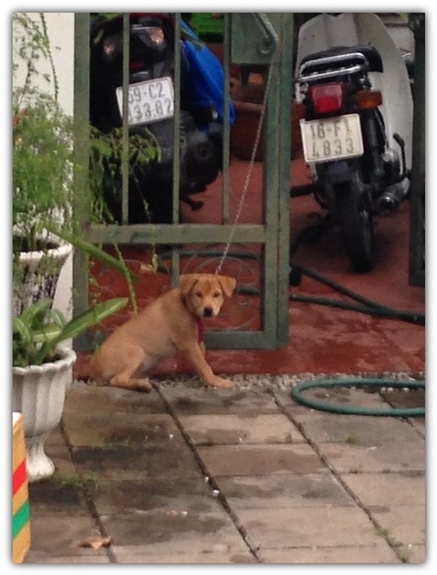 Neighborhood dog
Neighborhood dog I soon found out that it was not just my next door neighbors who mistreated their dogs. Lots of people in my neighborhood were the same. One day when I was walking home from school, I saw some ladies on the curb throwing stones at a small dog, and beating him with a stick. Lots of dogs in my neighborhood are on short little chains, or inside the gate, sticking their heads out the gate, pleading to go outside.
Near my house, there is a cafe called Stardogs. It’s not the kind of cafe like in Seattle where you can bring your pooch and get a dog treat. Here in Stardogs, live a family of Siberian huskies. The cafe has them there because the dogs attract customers to their store. People must pay 40,000 Vietnamese dong (that’s about 2 dollars) to play with the dogs. But these dogs are in no shape to play. They are confined to a small muggy area, and are constantly in need of fanning. Huskies need cold, and in Ho Chi Minh City, cold means 80 degrees. So the huskies lie around all day, panting. There is another house near where we live where there is a husky who is tied up on a short leash on the porch all day long. We have never ever seen him go for a walk or play with anyone. He does not have a water bowl near him.
Twenty-five years ago, Vietnam was very, very poor. A lot of people could hardly feed their families, let alone have a dog. Back then people couldn’t usually afford to have a dog, but as Vietnam becomes richer, people have been getting dogs as pets. But people have been treating dogs in sad ways. Having animals for companions is still a little bit fuzzy here in Vietnam. A lot of people do not know much about caring for a dog, or only have one for a status symbol, to show that they are rich. Pure breed dogs are really popular, especially blue-eyed huskies as well as malamutes, samoyeds, golden retrievers, and German shepherds. These are all dogs that like cold weather. The biggest problem, says Dr. Nguyễn Văn Nghĩa, a vet who lives in Ho Chi Minh City and is passionate about animals, is that most people in Vietnam are not educated enough about how to treat dogs. A huge problem is that people do not understand a dog's basic needs, like water, food, and doctors. Lots of people here think that taking a dog to the vet is a waste of money. In fact, even most vets are not very well trained either. In Vietnam you can become a vet in 6 months, while in America, it takes 5-8 years of training.
Because more people want dogs as pets, there are more places selling dogs. The pet market in Ho Chi Minh City is a sad sight. It is located in district 10, about 10 miles away from where I live. Here on the streets are rows and rows of cages, and crammed inside are dogs. To sell dogs like this is illegal, but the people just ignore the law. Some of these dogs are stolen from other pet owners. They are kept in small cages, out in the blazing sun all day. This is even worse when the cages have lots of dogs crammed inside. The sellers do not give the dogs enough water, and because of that the dogs often die. And about 90% of all dogs in Ho Chi Minh City that are sold for pets on the illegal market eventually die of distemper in their new home. The sellers give the sick dogs steroids to make them appear more lively and active, which makes buyers want the “active” dogs. Dr. Nghĩa disapproves of this trade. He wants to make the people who are selling the dogs vaccinate them. But he has often been shooed away and cursed at, because the sellers don’t want to spend the money, because they think they’re just dogs.
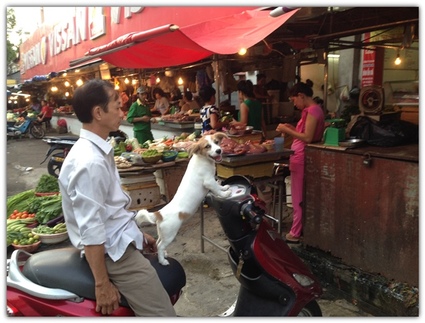
But not all dogs in Vietnam are treated badly . Lots of the Buddhist temples have happy dogs. When we were in Mui Ne we met a cool dog on the beach. He hangs out all day making new friends, and his owners are really nice to him. Things are changing. Vietnam is learning more about the welfare of animals, and they even had a conference for the welfare of animals (that will be in one of my future articles). More and more educated vets are coming to Vietnam, and people are changing quite a bit. But there's still a lot more to be done. Next time, I will be talking about a very sad fate. The dog meat trade in Vietnam. But for now, goodbye, and please, take care of your dog.
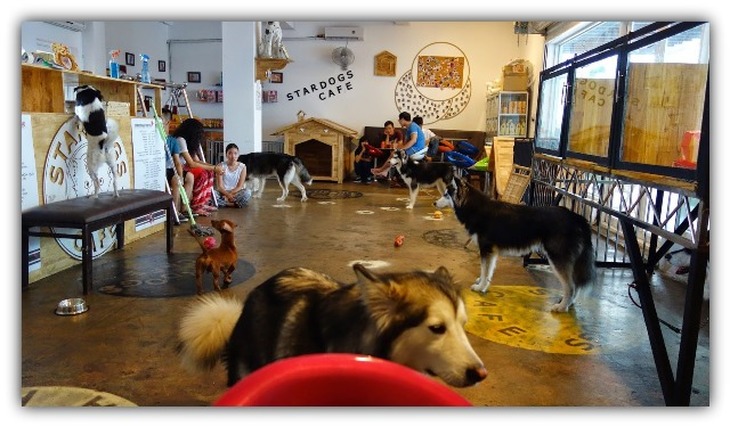
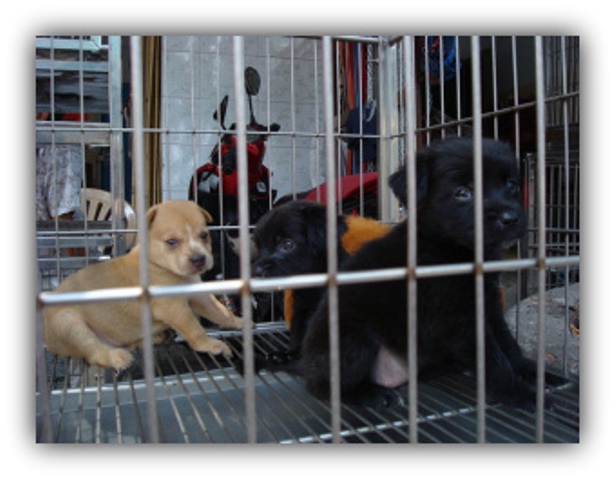
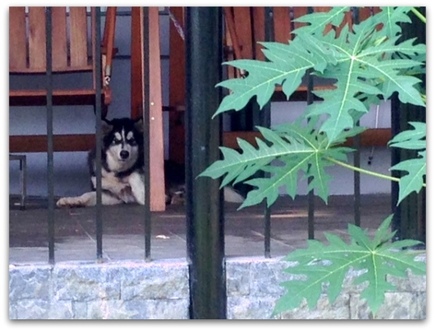
 RSS Feed
RSS Feed
